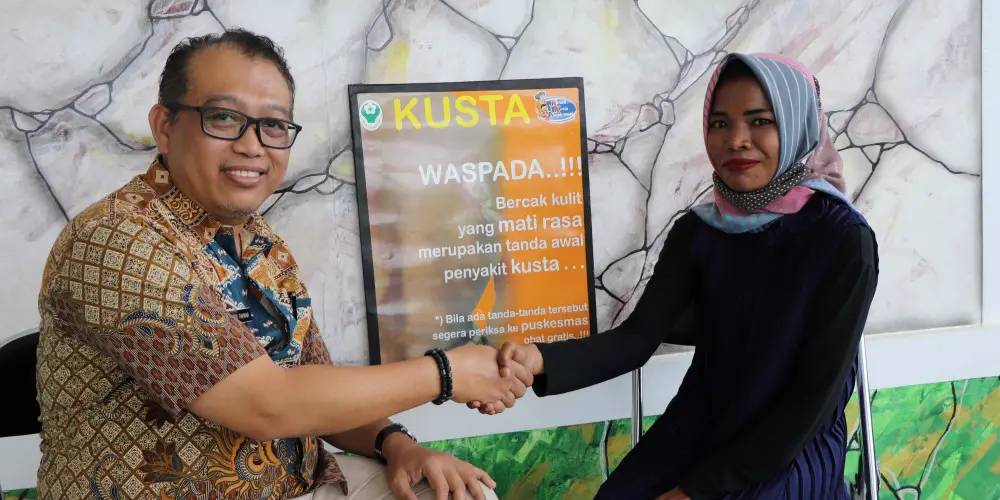Overwhelmed by depression, Mulyati struggled to deal with the stress that leprosy brought to her life.
“I was just 13. The skin of my body turned reddish. There were pains in some parts of the body and my legs started to swell.”
Mulyati, from Subang in Indonesia, was already starting to show signs of clawing in her hands when her father, who also had leprosy, first took her to a local Community Health Clinic.
Leprosy reaction during her 12-month treatment meant Mulyati often missed classes at school. While she had a kind teacher who allowed her to learn at home during these times, her neighbours were not so kind. This stress and depression triggered some of the leprosy reactions in her body.
It wasn’t until Mulyati had finished her treatment and joined a Self-Care Group that she met others affected by leprosy from other villages and her life turned around. “I didn’t feel alone. I was taught how to take care of my fingers so that they did not get clawed. I also abide by advice…to pay attention to my eating diet, not to get stressed and to keep up high spirits.”
With new confidence, Mulyati, completed school, and found employment where she was not rejected because of her now cured leprosy. Today, at 23, Mulyati is married with twin boys (see inside) and sells ready-to-eat salted duck eggs door to door. Mulyati hopes someday she can produce her own ready-to-eat salted duck eggs so that she can gain more profit. She also participates in programs to promote leprosy awareness.
“I encouraged the people to participate in the leprosy prevention program so that our village will be free from leprosy. If you feel or see something wrong with your skin, just go to Puskesmas (Health Clinic) for examination.”
Written by Glen Coleman. Glen Coleman is a staff member of The Leprosy Mission Australia.

